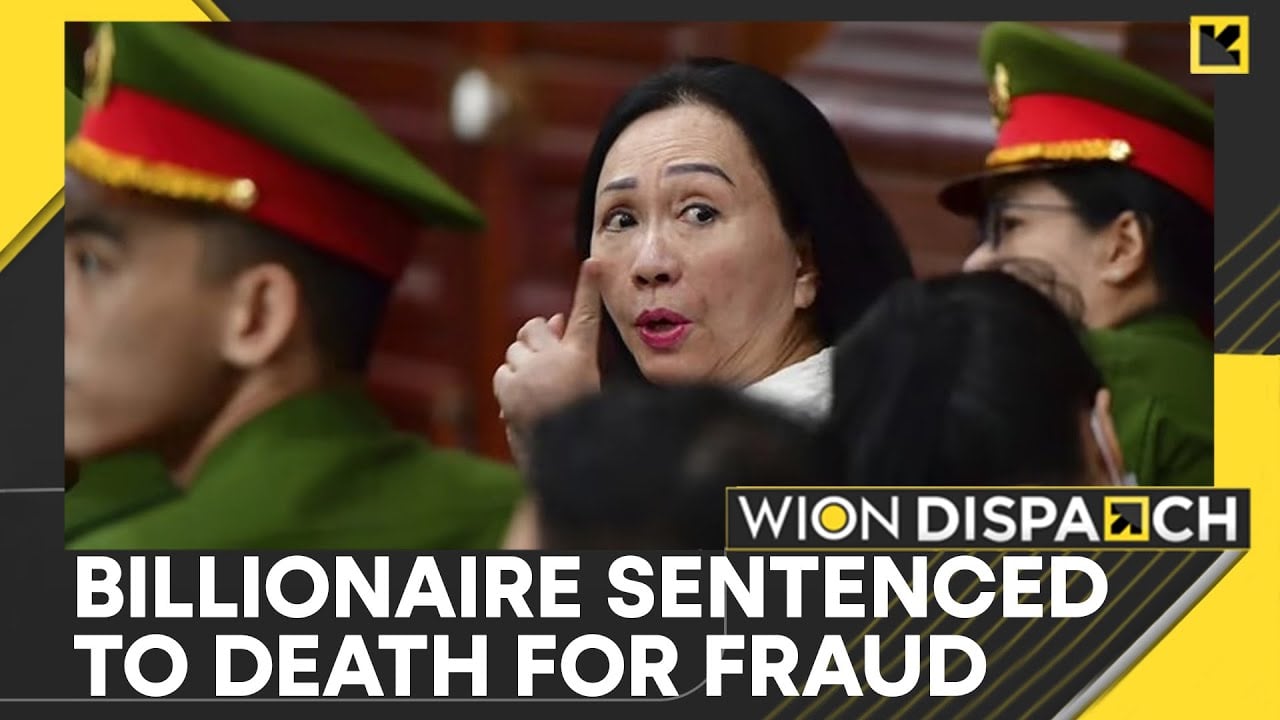Truong My Lan, a prominent figure in Vietnam’s real estate sector, was handed a death sentence by a court in Ho Chi Minh City for her role in the country’s largest financial fraud case to date, as reported by state media outlet Vietnam Net.
The 67-year-old chair of Van Thinh Phat, a major real estate firm, was convicted of orchestrating fraud amounting to $12.5 billion, representing nearly 3% of Vietnam’s GDP in 2022. Lan was found to have illegally controlled Saigon Joint Stock Commercial Bank (SCB) between 2012 and 2022, allowing 2,500 loans that led to a staggering $27 billion in losses for the bank, according to VnExpress.
Despite Lan’s charitable activities and it being her first offense, the court’s decision reflected the gravity of the case. The judge remarked that Lan headed a sophisticated criminal operation, severely impacting SCB and eroding public trust in the Party and State leadership.
Lan’s family members also faced legal consequences: her niece, Truong Hue Van, received a 17-year prison term, while her husband, Eric Chu Nap-kee, was sentenced to nine years. The case underscores Vietnam’s ongoing anti-corruption efforts, with the “Blazing Furnace” campaign targeting high-profile individuals across various sectors.
The fallout from Lan’s actions has reverberated through Vietnam’s real estate industry, leading to market disruptions and raising concerns among investors. The case serves as a stark reminder of the consequences of financial misconduct in a nation striving to attract foreign investment and bolster its economic standing.
Who is Truong My Lan?

Truong My Lan is a prominent figure in Vietnam’s business landscape, particularly known for her involvement in the real estate sector. Born in 1956, she started her career by assisting her mother, a Chinese entrepreneur, in selling cosmetics at Ho Chi Minh City’s oldest market. This early experience laid the foundation for her entrepreneurial journey.
In 1992, Lan and her family founded Van Thinh Phat (VTP), a real estate company, taking advantage of Vietnam’s shift toward a more market-oriented economy that welcomed foreign investment. Over the years, VTP grew to become one of Vietnam’s wealthiest real estate firms, with a portfolio that included luxury apartments, hotels, offices, and shopping malls.
What is she accused of?
Truong My Lan was accused of orchestrating a massive financial fraud scheme, involving embezzlement, bribery, and violations of banking regulations. Here are the key accusations against her:
- Embezzlement: Lan was found guilty of embezzling funds amounting to $12.5 billion, which represented nearly 3% of Vietnam’s GDP in 2022. She illegally controlled Saigon Joint Stock Commercial Bank (SCB) between 2012 and 2022, allowing 2,500 loans that resulted in losses of $27 billion for the bank.
- Bribery: Lan was accused of paying bribes to government officials, including a senior central bank inspector who received $5.2 million in bribes. These bribes were allegedly aimed at persuading authorities to turn a blind eye to her illicit activities and violations of banking regulations.
- Violations of Banking Regulations: Lan violated banking rules by using SCB as her “cash cow,” unlawfully controlling the bank through proxies despite regulations limiting large shareholding in lenders. She approved thousands of loans to “ghost companies” both in Vietnam and abroad, funneling funds back to herself and her associates.
These accusations paint a picture of Lan’s involvement in a sophisticated and orchestrated financial fraud operation that severely impacted SCB, eroded public trust in financial institutions, and had broader implications for Vietnam’s economy and business environment.
As a result of the case, there have been broader implications for Vietnam’s economy, with questions raised about the integrity of other banks and businesses. This has dampened investor confidence at a time when Vietnam has been positioning itself as an alternative destination for businesses seeking to diversify their supply chains away from China.
The complexity and scale of the fraud have led to significant challenges for SCB, which now faces a complex restructuring process. The fallout has also had repercussions in the real estate sector, with an estimated 1,300 property firms withdrawing from the market in 2023 and developers offering discounts and incentives to attract buyers.
The “Blazing Furnace” campaign against corruption, spearheaded by Communist Party General Secretary Nguyen Phu Trong, has seen a wave of prosecutions targeting high-profile individuals across various sectors. This case underscores the ongoing battle against corruption in Vietnam and the determination of authorities to hold perpetrators accountable, regardless of their status or influence.



